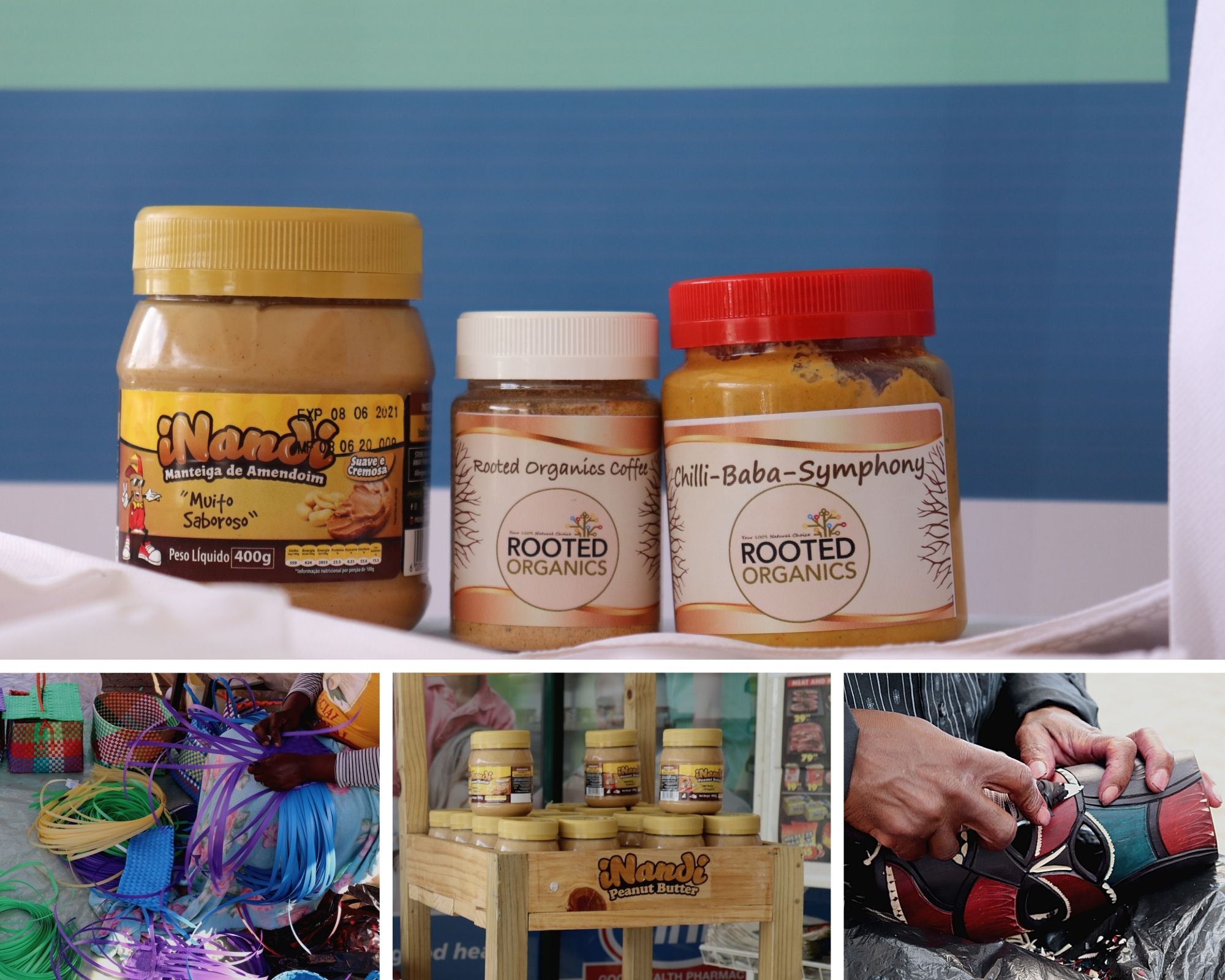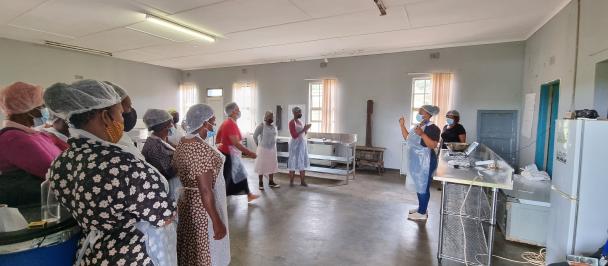Some of the products that are created by the Cottage Industry. Photo Credit: UNDP Eswatini
By Zandile Mthembu
As the UNDP Eswatini Accelerator Lab, we have analyzed the existence of locally-made products in the retail formal and informal sector. In the process, we learnt about the economic dynamics of the cottage industry where a variety of interesting products are created for the local market. These products include, but are not limited to, jams, sauces, peanut butter and soaps. Interestingly, although some of the products are indigenous, they have become scarce or are forgotten due to modern lifestyles and/or urban migration. These products are also believed to have many unique health benefits because they are indigenous and they provide the market with feelings of childhood nostalgia.
The local cottage industry seems to be the backbone of the economy but it hasn’t been well researched. While in many countries across the world the industry has been found to play a significant role in contributing to livelihoods and rural development through job creation, in Eswatini it is still underdeveloped. This is an interesting fact considering that the kingdom is among countries with the highest rates of poverty, inequality, and unemployment in the world. It is therefore worth taking a closer look at the local industry to gather some insights.
Observations of cottage industry Eswatini
The Ministry of Agriculture’s Home Economics Department has played a significant role in empowering rural and urban communities with basic food processing and preservation, carpentry and soap-making skills. The department motivates people through programmes that emphasize the value of “sustainable livelihoods”. Through its programmes, some community members formed women groups to manufacture products ranging from peanut butter, sauces, jams and liquid soaps to yield benefits of ‘collective capacity’ and to boost income. However, over the years it has been noted that the training attracts participants with a low business acumen to drive the commercialization of their products at a large scale. This means that participants of such programmes tend to use their acquired skills and products for domestic purposes and sell the little that is left to neighbors. As such, there is a need to find ways to attract unemployed youth and ensure that programmes offered include technical guidance on basic industrial processing and business administration at the cottage industry level.
With the growing popularity of social media marketing, several cottage industry products have emerged. A significant portion of the products is also agro-processed goods such as sauces, jams, coffees, bakery, confectionary, domestic liquid soaps, skincare and grooming products. This trend is interesting because Eswatini cottage industries have mostly been dominated by handicraft, textile, interior decorations, meat and dairy products, and construction products (welding, bricks etc.). The individual product suppliers seem to be mostly from urban to peri-urban areas with a clear business interest, as some have online stores for their products.
Some of the challenges faced By Cottage Industries in Eswatini
The industry faces intense challenges in designing marketing strategies, accessing finance to invest in equipment, raw material supply chain management, product development and preservation, and meeting food processing standards requirements. Meeting food safety standards requirements appears to be the main barrier for growth and sustainability for the cottage industries particularly those that process edible products. This is because meeting food safety standards is a key requirement for both formal local retail outlets and export markets. In Eswatini, like in most of the Sub-Saharan countries, the predominant form of retailing is formal. Shopping centres and malls are the main market access points for fast-moving consumer goods. While this phenomenon is good, the strict formal retailing requirements are a market access barrier for Micro Small and Medium Enterprises, who are still at the cottage industry level. Nonetheless, a lot can be learnt from other African economies, such as Kenya, which have endorsed cottage industry policies that have improved access to the market for these products.
Most cottage industries in Eswatini face poor market perceptions. A young fashion designer shared that “the local market doesn’t want to pay us well because the consumer’s expectation is that since I am a local and have made the garment from my cottage business, where I don’t pay rent and etc., I should sell at a lower cost’’. Some local artisans also share this view, as such, they struggle to find a local market that appreciates and values their products, skills, quality, and the time that goes into making the product. As a result, some choose to use cheaper product inputs to manage costs at the expense of quality.
The inability to form groups among individual cottage businesses that manufacture the same product (especially in rural communities) is another challenge. This limits some cottage industries from reaping the benefits of economies of scale and attracting potential support from the Government, development agencies and venture capitalists to help contribute towards the scaling of their activities. This silo approach creates unnecessary competition among cottage businesses targeting the same market segment, leading to limited progression in these businesses.
Buy local, Buy Swazi
Local flea markets and promotional events and campaigns that support the consumption of local products, under the mantra of ‘buy local’ or ‘support local’ or ‘go local’ can play a pivotal role in the promotion of cottage products. Such a campaign could serve as a platform that brings together cottage industrialists in Eswatini, with the long-term goal of changing the narrative that has a perennial dependence on imports of products that can be easily produced and manufactured in the country. During the Agriculture Indaba on 17th June 2021, the Minister of Agriculture, Hon. Jabulani Mabuza, said “let us stop importing basic food commodities that can be produced locally, let us stop exporting money and jobs to other countries. Asidle kwetfu (let us consume our own) and keep our wealth and jobs.” The challenge has been put on the table for us all.
(Zandile Mthembu is the Head of Experimentation at UNDP Eswatini Accelerator Lab)

 Locations
Locations
